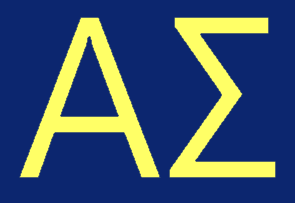National Times Table Checks
An announcement was made yesterday that there will be national Times Table Checks for pupils aged 11 (i.e. at the end of Primary School). I have concerns.
Times Tables are necessarily a memory exercise, which are, admittedly, quite useful. However what they do not test is whether you are good at maths. It is true that many mathematicians have quick mental arithmetic which comes from their familiarity with numbers, but the qualities of a good mathematician are logical thought about pattern and structure.
Many people grow up with a hatred of maths because of early high school where the frequent algebra tests tell them they are wrong repeatedly. Maths is seen as this set of arbitrary rules for shuffling around symbols on a page until someone tells you that your particular configuration fits with the mark scheme. If there is something that you didn't quite get the first time round then it means that you can't understand the next thing in the syllabus and so the problem compounds. Eventually you leave high school with a knowledge of mathematics equal to where you first didn't quite catch something and no more, along with a strong dislike of the whole thing. The, "I just can't do maths" attitude.
What we (the people who get joy from these abstract ideas) want to encourage is a maths education which allows people to investigate these ideas and actually explore. Maths is a creative discipline which, when you have learned the basic tools, should be open ended. One of the patterns we like to study most we call numbers, but those are only one part of mathematics. While testing is important, if we want to test how good a mathematician someone has the potential to be or how much maths they currently understand, then using a formulaic memory test is not the answer.
Imagine the year 6 syllabus for those that haven't yet grasped how to do some of the trickier Times Tables. At least once a week you will write out the same 100 numbers in a square and you will be bluntly told your score. Week after week of being told you are wrong does not inspire creativity, it just moves the usual self hatred forward from the usual year 8 to year 6. Primary School mathematics should be the first steps of exploration, but I worry that schools will have to cut this actual maths content to be able to compete in the league tables. It is entirely the wrong focus. Further, what do we expect those people that fail the test to do when they reach high school? Is their year 7 maths bound to be times tables for a year?
While we are here, it has not yet been announced whether these tests will include the eleven and twelve times tables. We use a base 10 number system, so we have to learn the Times Tables of 1 to 10. These enable us to use calculate literally any number with any number by splitting it up using the grid method/short multiplication/whatever. Doing a multiple of 12 can be done in exactly the same way as doing a multiple of 13, i.e. by splitting it into tens and units then finding sub-products. In the past the prevalence of shillings made multiples of 12 important, but in a world which is slowly modernising, hours in a day and inches in a foot are not worth the effort. Teach how to extend the system of multiplication to any number rather than getting people to learn 44% more of a grid.






